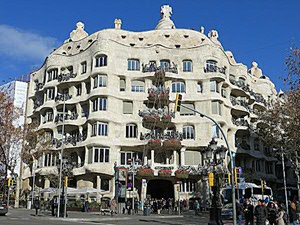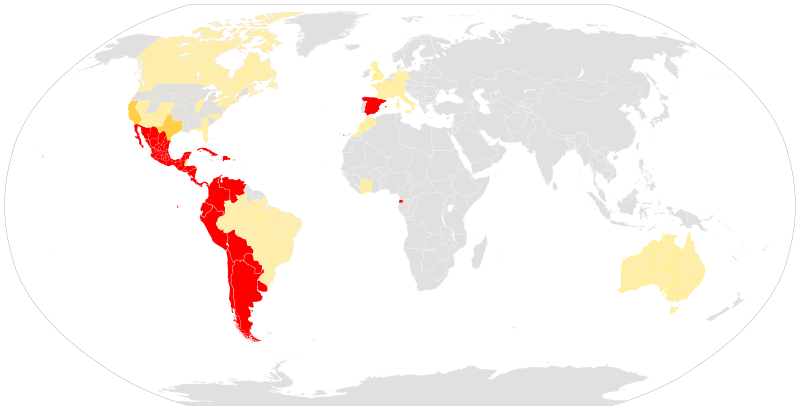Studying Spanish within European Languages and Cultures

Spanish is the world’s second most spoken native language, after Chinese. Spanish is spoken in most Latin American countries as well as parts of the United States. The specialization in Spanish within European Languages and Cultures at the University of Groningen will give you a very broad knowledge of Spanish language, history, culture and politics in relation to the surrounding world.
You may find Spanish a fun school subject, or perhaps you have been to a Spanish speaking country or you like the music from Shakira. There are plenty of reasons why you might choose to take the Spanish specialization within European Languages and Cultures. This is a good choice, as almost half a billion people around the world speak this language. Even in New York you will hear Spanish all around you.

Why Spanish?
By learning Spanish, you will be able to understand and actively participate in Spanish speaking communities, you will learn about the complexity of the Spanish-speaking countries, their history and their societies.
In addition to immersing yourself in the Spanish language, you and your fellow students of European Languages and Cultures in Groningen will learn about social developments and the role language plays in them, about literature and culture, history and European politics. You will learn how these fields have always influenced each other, not stopping at national borders. You will, for example, discuss the legacy of European colonialism in Latin America, the impact that moments of political turmoil have had upon literature and art, as well as examining broader social phenomena such as immigration, gender identity and nationalism in the Spanish-speaking world.
You will have the opportunity to take Spanish-language-taught courses in the areas of socio-linguistics, literature and culture, and politics. In these courses you will encounter topics such as the functional/communicative difference between the simple past tenses in Spanish when used in real language samples, Frida Kahlo’s responses to the Mexican Revolution and the intersection of activism and conceptual art in the context of Chile’s military dictatorship.
An important component of your degree programme is a stay abroad during your second or third year. The Faculty of Arts has contacts and agreements to this end with universities both in Spain and Latin America. Besides an onsite exchange, during the Spanish proficiency courses, students participate in virtual exchanges with students from other Spanish speaking countries such as El Salvador, México, Perú or Spain.
The combination of Spanish and European Languages and Cultures will make you suitable for a wide range of careers. Some graduates have landed jobs in communications at companies that do business in Spanish-speaking countries, or at NGOs. You can write the assignments and papers for these profile course units in your target language, and you may also concentrate on a certain field of study. You could also work for a publishing company, in the diplomatic world, become a teacher, or take further training and become a translator.
Back to European Languages and Cultures.

'The language seminars at UG have been amazing.'
Choosing to study Spanish as part of the European Languages and Cultures programme stemmed from my appreciation for Spanish and Latin American culture. As a kid, I became fascinated with Spanish cinematography, and since then, I have desired to speak this very melodic language. Hence, learning Spanish has always been a dream of mine. Additionally, Spanish is the one of the most spoken languages in the world, offering access to an incredibly rich and diverse cultural landscape and opportunities when traveling.
The language seminars at UG have been amazing. Our professors are passionate about guiding us through the intricacies of the Spanish language, specifically grammar, which can be difficult at times. One of my favourite parts of the programme is the weekly 'Intercambio sessions': one-hour online meetings with native Spanish speakers that allow us to discuss cultural topics and themes we've covered in class, providing invaluable real-world practice, insights, and friendships. Moreover, as a book lover, I particularly enjoy our method of learning Spanish through movies and literature. This approach makes the learning process feel natural and engaging, blending relaxation with language acquisition.
Having just finished my first year, I'm really looking forward to the upcoming courses that focus more specifically on the Spanish-speaking world. I'm also excited about the prospect of going on an exchange programme to a Spanish-speaking country, preferably Mexico. The chance to immerse myself in Mexican culture firsthand is something I eagerly anticipate, and I believe it will deepen my understanding and appreciation of the language and its cultural context, as I look forward to discovering its vibrant culture, traditions, and history.
